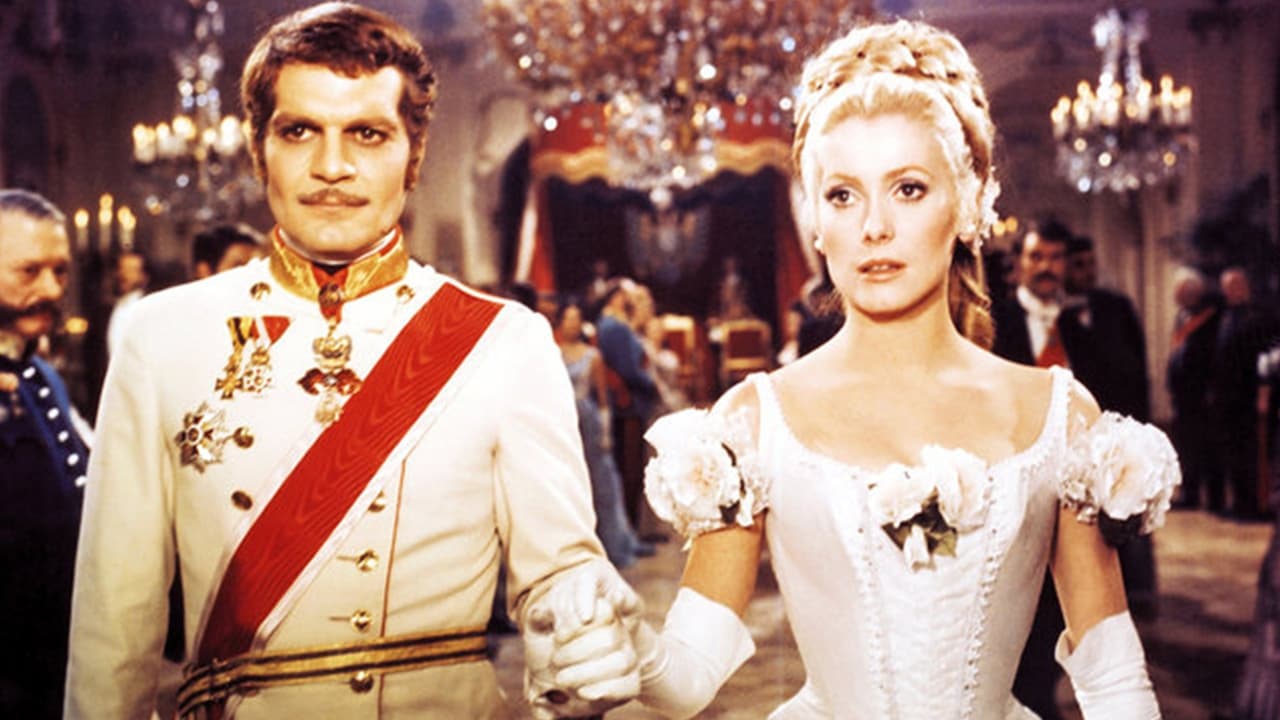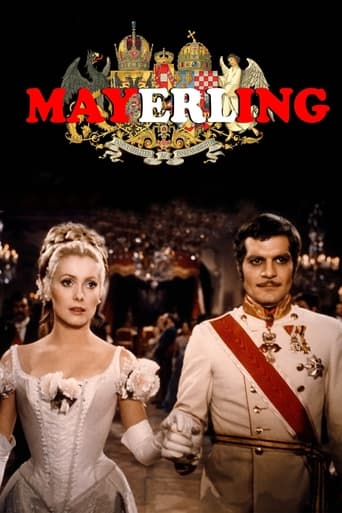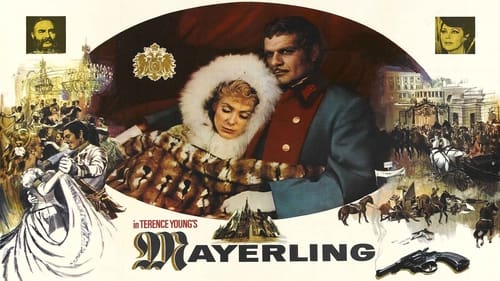


"Mayerling" is the technicolor-version of "Marie Antoinette", although the gorgeous gowns worn by the ladies are not nearly as sumptuous. Of course, Empress Therese produced many females to wed-off to all the royal courts of Europe. In fact, Empress Victoria (England) was sent to rule there as a teenager ! I only read one user's mention of Marie Antoinette; the early BW version (starring Norma Shearer) displays the opulence royal families led in their icy palaces.Dirctor Terence Young did a splendid job of getting all the right ingredients together for this love-story (script by Michel Arnold). As several users have pointed-out, history was a minor one: many fictional scenes in here, although they certainly contributed to the drama between Crown-Prince Rudolph (Omar Shariff) and "Maria" (Catherine Deneuve). This story is at the near-end of the Austro-Hungarian Empire, after 600 years of ruling.Also as some users pointed-out, royal families (then) had little contact with their children - they were too busy being royal....primping and changing clothes so many times a day. Empress Elizabeth (Ava Gardner) portrayed that role with conviction. She did not like "court" life, and most likely wasn't that familiar with all of "Rudolph's" conspiring to take the throne from his father - Emperor Franz-Jospeh (James Mason). Politics then - even WITHOUT the TV-debates ! - was as notoriously corrupt as it is now. Some users mention the lovers' deaths could just as well have been assassinations. Myself, I thought the lovers had poisoned themselves, so I was shocked at the ending.Many users mentioned how well James Robert Justice played "Edward, Prince of Wales". I thought the role was good, but Justice was much too physically large: "Wales" was well-known to skip off to Russia to visit with Czar Nicholos (they were often thought-of as being brothers), so he could openly cross-dress for the many court celebrations....seldom mentioned....All-in-all, this is a very lush movie. Enjoy it for what you see on the screen. Pomp and circumstance certainly give our imaginations a lot of excitement, and this movie can be enjoyed by all. Bravo !
... View MoreIf you want history go and do a degree. This movie is pure romantic escapism. The locations are authentic and magnificent and so are the actors. Catherine Denuve and Omar Shariff are stunning as lovers. The movie sound track is wonderful, particularly 'the Spartagus.'I found it to be definitely a romantic overdose. I first saw it as a teenager on TV and it has stayed with me all those years. It belongs firmly in the Hisotrical drama category. Other similar movies are Anna Karenina, which was a BBC mini-series which screened in 1977; Waterloo Bridge with Vivien Leigh and Robert Taylor; Beau Brimmel with Elizabeth Taylor and Stewart Granger; Young Bess with Stewart Granger: Just to name a few.
... View MoreThe dashing Omar Sharif was born to be a crown-prince, or at least look the part to perfection (is he of royal Egyptian blood?), while Catherine Deneuve takes your breath away in every scene she's in, most notably as they watch "Giselle" at the theater. An Oedipus complex is hinted at here, and I suppose not all sons (not even only sons!) kiss their mothers on the lips (or it could be an Austrian thing, who knows?). But given his lifestyle of high living, promiscuity and dalliances with radical politics, coupled by an addiction to morphine and the off-chance of insanity in the blood, I don't think the end was as bittersweet and romantic as the movie portrayed it to be. No doubt the prince was a depressed, politically-impotent man who saw no promise in a future which included a loveless marriage, a domineering father and a mother who was never there--no big deal to most, but this was an only child used to getting his way most of the time. I'm sure Maria Vetsera, practically a child in love for the first time, was only too flattered to have been chosen by the prince to die with him. All in the name of love, of course.
... View MoreMayerling is supposed to be a story of love and passion set in the backdrop of political turmoil in the austro-hungarian empire. The problem is there is very little passion in this movie. Catherine Deneuve, which I usually love, and Omar Sharif give such wooden performances that it is hard to imagine they would die of love. Ava Gardner is about as bad and James Mason does hardly better. Only James Robertson Justice and Genevieve Page seem to believe in what they are doing.As far as the political story, you will not know very much more of the state of the empire after seing the movie. Characters drop by Omar Sharif once a while without enlightening us very much about their problems and goals. The only redeeming values are production values which are quite good. Better watch the original French movie with Charles Boyer and Danielle Darrieux.
... View More